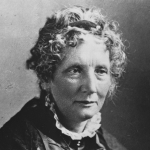The cities dissolve, and the earth is a cart loaded with dust
Only poetry knows how to pair itself to this space.
No road to this house, a siege,
and his house is graveyard.
From a distance, above his house
a perplexed moon dangles
from threads of dust.
I said: this is the way home, he said: No
you can’t pass, and aimed his bullet at me.
Very well then, friends and their homes
in all of Beirut’s are my companions.
Road for blood now—
Blood about which a boy talked
whispered to his friends:
nothing remains in the sky now
except holes called “stars.”
The city’s voice was too tender, even the winds
would not tune its strings—
The city’s face beamed
like a child arranging his dreams for nightfall
bidding the morning to sit beside him on his chair.
They found people in bags:
a person without a head
a person without hands, or tongue
a person choked to death
and the rest had no shapes and no names.
—Are you mad? Please
don’t write about these things.
A page in a book
bombs mirror themselves inside of it
prophecies and dust-proverbs mirror themselves inside of it
cloisters mirror themselves inside of it, a carpet made of the alphabet
disentangles thread by thread
A murderer in the city’s air, swimming through its wound—
its wound is a fall
that trembled to its name—to the hemorrhage of its name
and all that surrounds us—
houses left their walls behind
and I am no longer I.
Maybe there will come a time in which you’ll accept
to live deaf and mute, maybe
they’ll allow you to mumble: death
and life
resurrection
and peace unto you.
From the wine of the palms to the quiet of the desert . . . et cetera
from a morning that smuggles its own intestines
and sleeps on the corpses of the rebels . . . et cetera
from streets, to trucks
from soldiers, armies . . . et cetera
from the shadows of men and women . . . et cetera
from bombs hidden in the prayers of monotheists and infidels . . . et cetera
from iron that oozes iron and bleeds flesh . . . et cetera
from fields that long for wheat, and grass and working hands . . . et cetera
from forts that wall our bodies
and heap darkness upon us . . . et cetera
from legends of the dead who pronounce life, who steer our life . . . et cetera
from talk that is slaughter and slaughter and slitters of throats . . . et cetera
from darkness to darkness to darkness
I breathe, touch my body, search for myself
and for you, and for him, and for the others
and I hang my death
between my face and this hemorrhage of talk . . . et cetera
You will see—
say his name
say you drew his face
reach out your hand toward him
or smile
or say I was happy once
or say I was sad once
you will see:
there is no country there.
murder has changed the city’s shape—this stone
is a child’s head—
and this smoke is exhaled from human lungs.
Each thing recites its exile . . . a sea
of blood—and what
do you expect on these mornings except their arteries set to sail
into the darkness, into the tidal wave of slaughter?
Stay up with her, don’t let up—
she sits death in her embrace
and turns over her days
tattered sheets of paper.
Guard the last pictures
of her topography—
she is tossing and turning in the sand
in an ocean of sparks—
on her bodies
are the spots of human moans.
Seed after seed are cast into our earth—
fields feeding on our legends,
guard the secret of these bloods.
I am talking about a flavor to the seasons
and a flash of lightning in the sky.
Tower Square—(an engraving whispers its secrets
to bombed-out bridges . . . )
Tower Square—(a memory seeks its shape
among dust and fire . . . )
Tower Square—(an open desert
chosen by winds and vomited . . . by them . . . )
Tower Square—(It’s magical
to see corpses move/their limbs
in one alleyway, and their ghosts
in another/and to hear their sighs . . . )
Tower Square—(West and East
and gallows are set up—
martyrs, commands . . . )
Tower Square—(a throng
of caravans: myrrh
and gum Arabica and musk
and spices that launch the festival . . . )
Tower Square—(let go of time . . .
in the name of place)
—Corpses or destruction,
is this the face of Beirut?
—and this
a bell, or a scream?
—A friend?
—You? Welcome.
Did you travel? Have you returned? What’s new with you?
—A neighbor got killed . . . /
. . . . . . . . . . . . . . . . . . . . . . . . . . . . . . . . . . . . . . . . . . . . . . . . . . . . . . . . . . . . . . .
A game /
—Your dice are on a streak.
—Oh, just a coincidence /
. . . . . . . . . . . . . . . . . . . . . . . . . . . . . . . . . . . . . . . . . . . . .
Layers of darkness
and talk dragging more talk.


















Comment form: